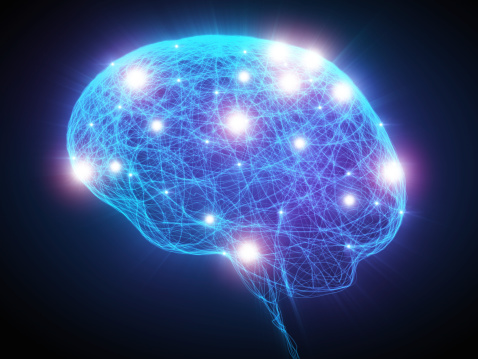Brain function and mental health might not be the first thing you think about when you think about the food and drinks you put into your body, but Kristine Carlson draws a comparison between the brain and another complex, high-performance machine.
“Most people probably don’t equate a healthy diet with a good mood or better memory,” UW Medicine dietitian Carlson says. “But, like an expensive car, our brains require premium fuel to function at its best. This function includes managing our emotions and mood disorders.”
Carlson says the old adage “You are what you eat” certainly applies when it comes to eating to nourish the brain and that there exists a great variety of foods that promote healthy brain function.
According to Carlson: “There is no single magic food that one must eat for brain health,”. “However, like with most approaches to nutrition and health, a variety of nutrients should be included in your diet for optimal benefits and brain health.”
Foods that Improve the Brain
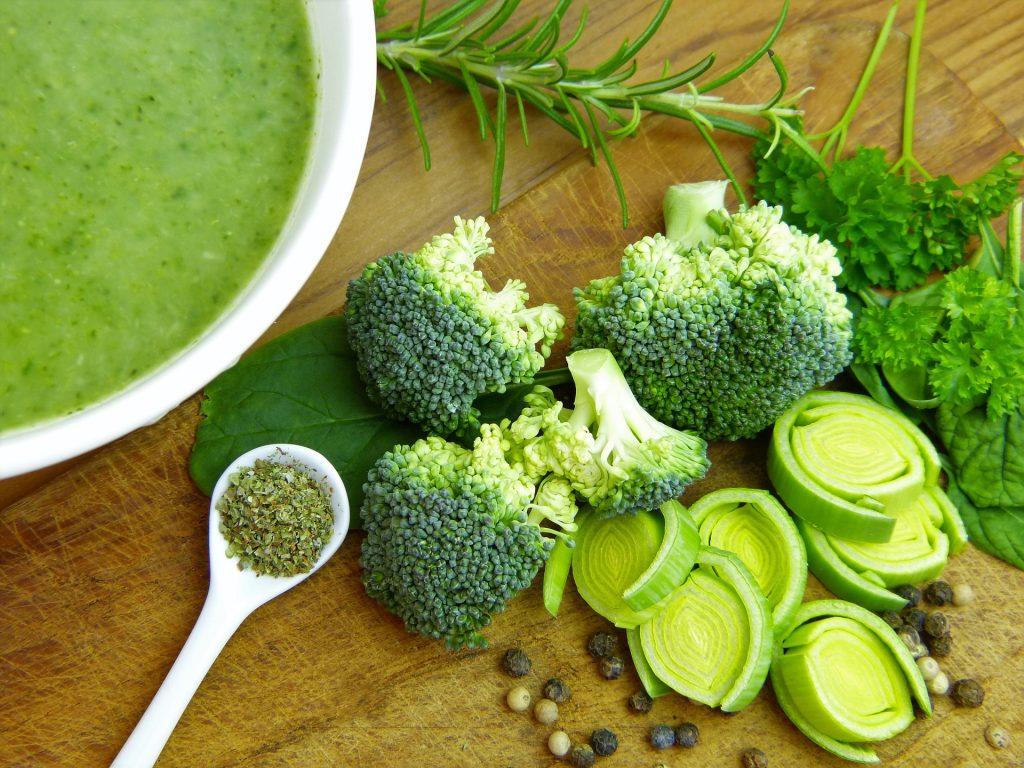
Green Leafy Vegetables
Vegetables such as kale, spinach, collards and broccoli are rich in brain-healthy nutrients like vitamin K, lutein, folate and beta-carotene. “These foods may slow cognitive decline which makes them great for protecting our brains and keeping us sharp.”
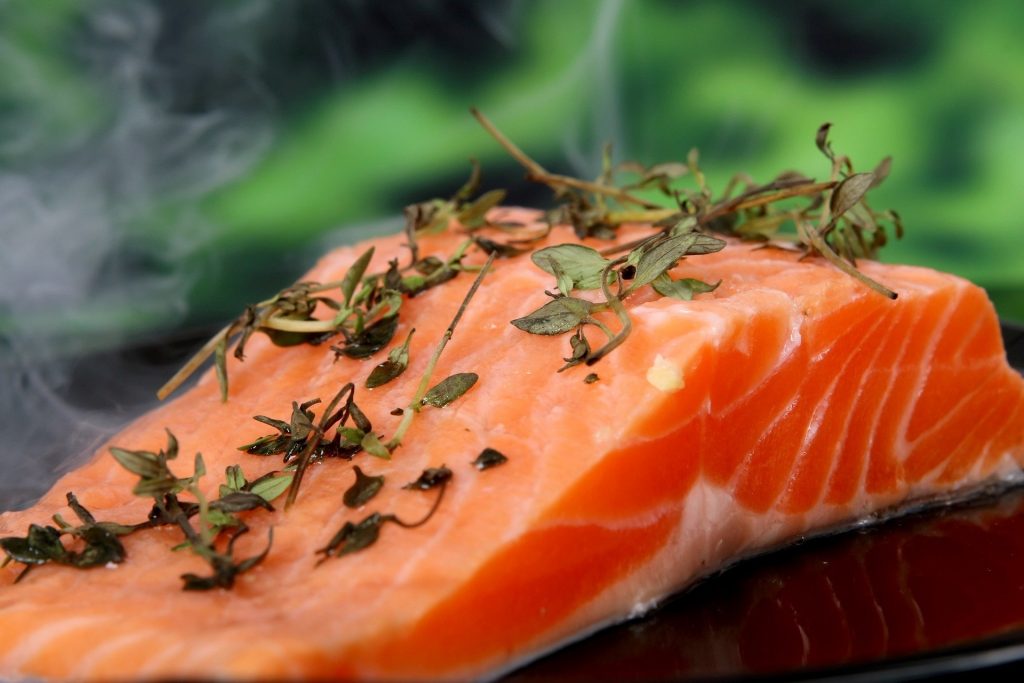
Fatty Fish
Fish such as salmon, trout and sardines, are full of omega-3 fatty acids, major building blocks of the brain. “Omega-3s play a powerful role in sharpening memory and improving mood, as well as protecting your brain against decline.”

Berries
Berries contain flavonoids, the natural plant pigments that give berries their brilliant hue. These help improve memory.

Tea & Coffee
The two main components in tea and coffee – caffeine and antioxidants – can help your brain. “Enjoy that morning cup for a sharpened sense of concentration.”
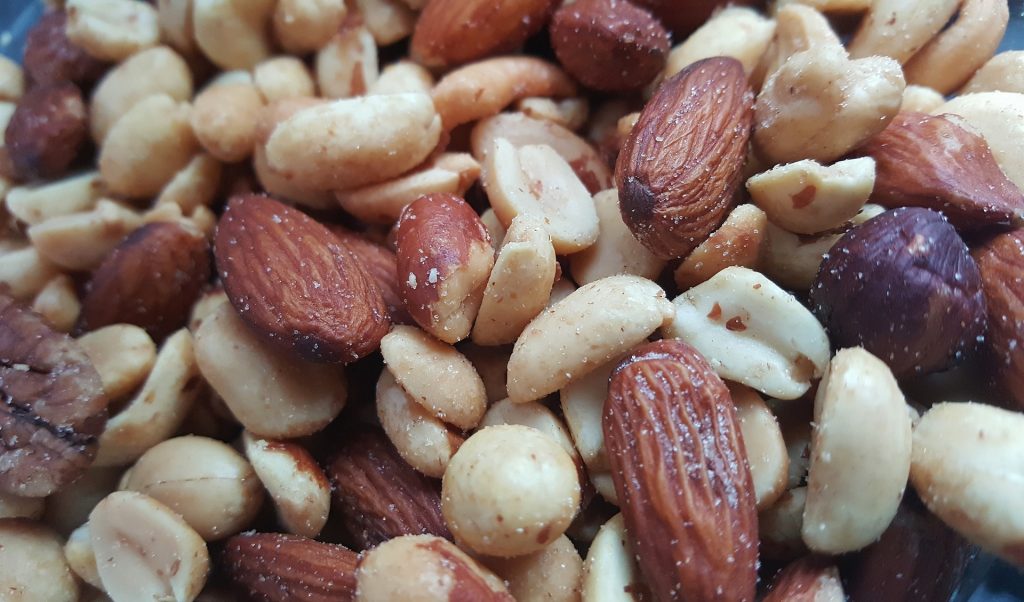
Nuts
Nuts are also high in omega 3 fatty acids, specifically alpha linoleic acid, which also helps with improving memory., major building blocks of the brain. “Omega-3s play a powerful role in sharpening memory and improving mood, as well as protecting your brain against decline.”
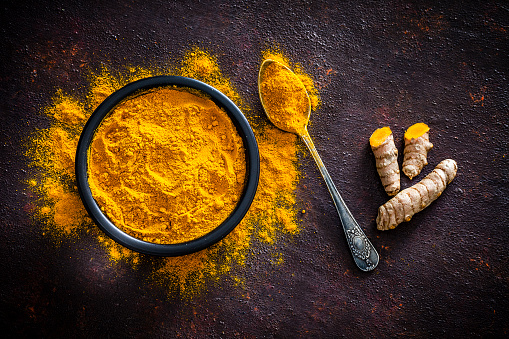
Tumeric
Turmeric and its active compound curcumin have strong anti-inflammatory and antioxidant benefits, which help the brain. In research, turmeric has reduced symptoms of depression and Alzheimer’s disease.
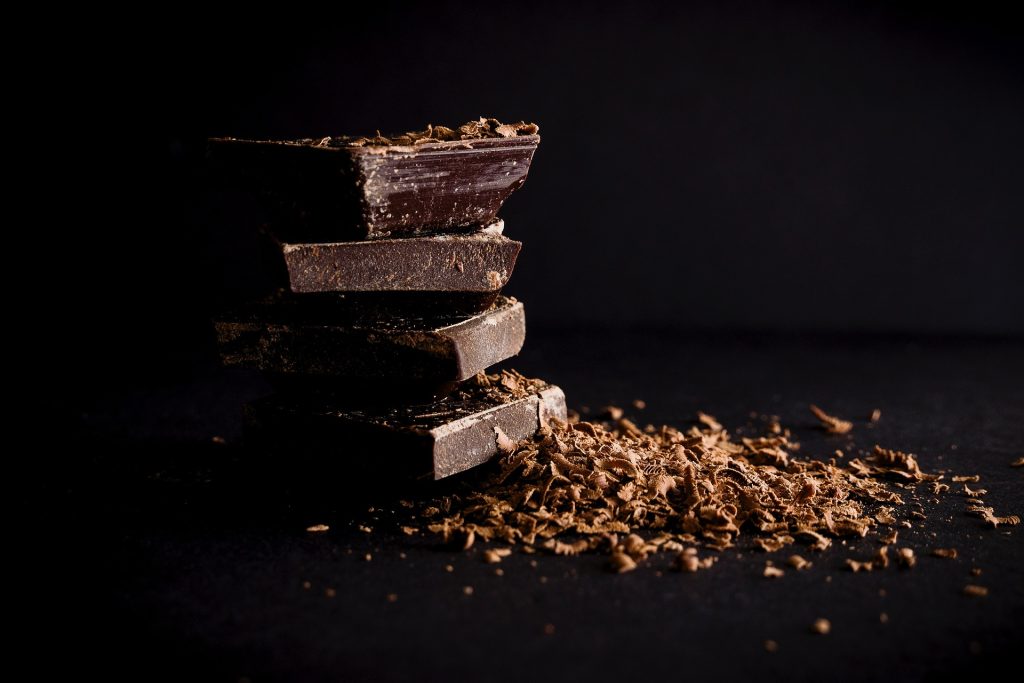
Dark Chocolate
Dark chocolate and cocoa powder are packed with brain-boosting compounds, including flavonoids, caffeine and antioxidants.
To feel more emotionally balanced and foster positive energy through our nutritional choices, Carlson advised us to “eat foods that give us energy, joy and fuel for our bodies.” “Eating high-quality foods that contain vitamins, minerals and antioxidants will nourish the brain in a positive way,”
Conversely, Kristine warns us that “a diet high in processed foods and refined sugars can impair brain function and worsen mental health symptoms.”.
Debunking Food Myths
In this day and age, there is tons of information about what you should be eating and what food items are deemed good or bad for you. Thus, it can be difficult to sort through all the noise and identify what are myths or facts.
When it comes to myths around nutrition and brain health, Kristine points out, “you may see advertisements and ‘diet programs’ out there touting “superfoods” and “brain foods.”
To get the most out of your diet, “you should incorporate a variety of foods, eat a diet high in unprocessed foods and refined sugars, load up on colourful fruits and vegetables, and above all, enjoy and savour your food.”
So next time you are digging into a meal or grocery shopping, think about these foods that will help keep your mind sharp, focused, and balanced!
Contact Balanced Healing for your personalised nutrition & Lifestyle Plan for you & your family.
Reference
Website: https://thewholeu.uw.edu/2020/03/02/nnm-2020-nutrition-and-the-brain
